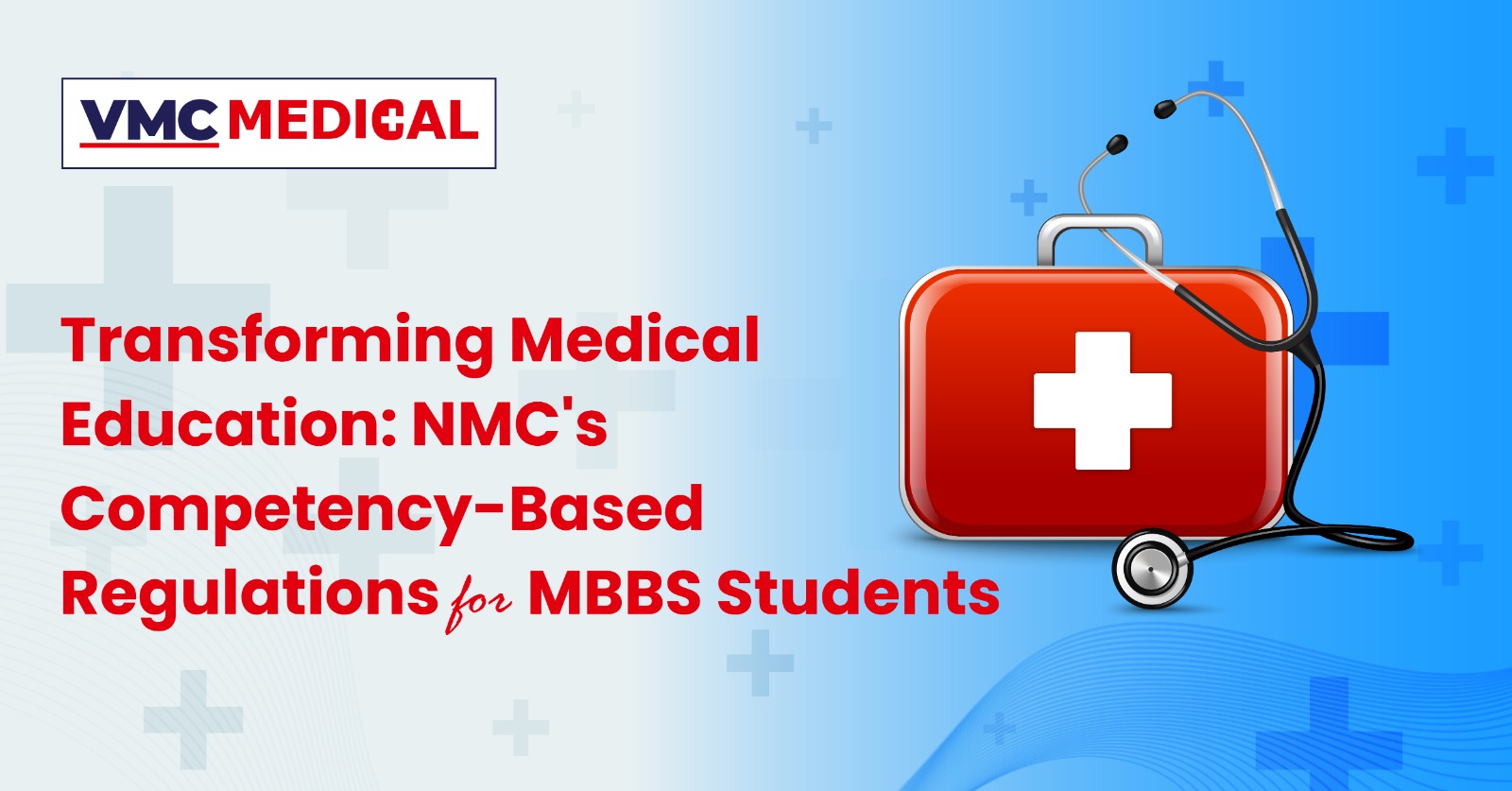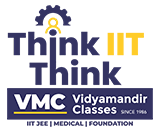NMC’s Competency-Based Regulations for MBBS Students
 Posted On
Posted On
1,234 total views, 3 views today
In a significant development for medical education in India, the National Medical Commission (NMC) has introduced a comprehensive set of regulations known as Competency-Based Medical Education (CBME) regulations 2023. These regulations, published on August 1, 2023, usher in a new era for aspiring doctors pursuing their MBBS degrees. In this blog, we will explore the key highlights of these regulations, their implications for medical students, and the broader impact on the medical education landscape.

A Paradigm Shift in Medical Education
The cornerstone of the CBME regulations is the emphasis on specific competencies and skills that medical students must acquire and demonstrate to become competent physicians. These regulations are designed to ensure that medical graduates are not just well-versed in theory but are also proficient in practical and clinical training. Let’s delve into some of the key aspects of these regulations.
Attendance Requirements
One of the most noteworthy changes is the stringent attendance requirements imposed on MBBS students. To be eligible for supplementary examinations following the regular annual examination, students must maintain a minimum of 75% attendance in theory classes and a remarkable 80% in practical or clinical training. This requirement underscores the importance of active participation and engagement in the learning process.
No Grace Marks
In a departure from the past, the CBME regulations eliminate the provision for grace marks in university examinations. This means that students must rely solely on their knowledge and performance to succeed, emphasizing the need for a deep understanding of the subject matter.
Family Adoption Programme
Another unique aspect of these regulations is the inclusion of a family adoption programme through village outreach for MBBS students admitted in the current year. This initiative aims to instill a sense of social responsibility and community engagement among future doctors. It represents a step toward nurturing well-rounded individuals who not only excel in their medical careers but also contribute positively to society.
Applicability Across Batches
The CBME guidelines are not limited to a specific batch of students. They apply to every student admitted to the MBBS course since 2019, ensuring uniformity and consistency in medical education standards. This inclusivity reflects the NMC’s commitment to raising the bar for medical education nationwide.
Phased Curriculum
The CBME regulations introduce a phased curriculum for the four-and-a-half-year MBBS course. Three sections of the curriculum are as follows:
- First Phase: 12 months
- Second Phase: 12 months
- Third Phase: 30 months (Subdivided into Part I of 12 months and Part II of 18 months)
The third phase, the longest of the three, emphasizes the transition from theoretical learning to practical application, mirroring the real-world challenges that medical professionals face. This structured approach ensures that students are well-prepared to handle the complexities of the medical field.
Time Limit for Completion
To maintain academic rigor and discipline, the CBME regulations stipulate a maximum total duration of ten years for completing the MBBS course, including the period of Compulsory Rotating Medical Internship (CRMI). Furthermore, the maximum allowed duration for completing the internship is capped at two years. These time limits encourage students to stay on track and complete their education in a timely manner.
Progression Criteria
The regulations establish clear criteria for students to progress through the different phases of the MBBS course. For instance, a student can only enter the second phase if they have successfully passed all subjects in the annual or supplementary examination of the first year. This ensures that students have a strong foundational knowledge before advancing to more complex topics.
Similarly, students who fail in the second professional examination will be allowed to join the third professional Part I training, but they must pass the second professional examination before appearing for the final examination or the National Exit Test (NExT). These measures are in place to maintain the high standards expected of medical graduates.
Limited Attempts
In line with the focus on academic excellence, the CBME regulations restrict MBBS students to a maximum of four attempts, including supplementary examinations, for the first year. This limitation ensures that students are diligent and motivated throughout their studies. It also encourages them to seek help and support early if they encounter difficulties.
Passing Marks
The CBME regulations introduce changes to the passing marks for MBBS subjects with two papers. Instead of a fixed percentage, students must score at least 40 marks out of 100 for subjects with 100 marks allotted. When there are two papers of 100 marks each, the total passing score becomes 80 out of 200. This approach promotes consistency and fairness in evaluating student performance, especially when practical examinations are involved.
MBBS Faculty
The NMC has taken a significant step in ensuring the quality of medical education by mandating that non-medico faculty members cannot be appointed as examiners for undergraduate examinations at any stage. This move underscores the importance of medical expertise in evaluating students’ knowledge and skills, ultimately leading to a more robust and credible evaluation process.
Biometric Attendance System
To enhance transparency and accountability, the CBME regulations make it mandatory for all medical colleges to install Aadhaar Enabled Biometric Attendance Systems (AEBAS). Both faculty members and students are required to mark their attendance through this system. This digital approach helps streamline the attendance tracking process and reduces the scope for manipulation or errors.
Final Thoughts
The introduction of the Competency-Based Medical Education (CBME) regulations by the National Medical Commission represents a significant milestone in the evolution of medical education in India. These regulations aim to produce well-rounded, competent physicians who are not only academically proficient but also socially responsible. By setting strict attendance requirements, eliminating grace marks, and implementing a phased curriculum, the NMC is raising the bar for medical education standards.
Furthermore, the emphasis on clear progression criteria, limited attempts, and revised passing marks ensures that students are motivated to excel and perform at their best throughout their MBBS journey. The inclusion of non-medico faculty members as examiners adds another layer of quality assurance to the evaluation process.
In the digital age, the adoption of the Aadhaar Enabled Biometric Attendance System (AEBAS) reflects a commitment to transparency and accountability in medical colleges.
As we look to the future, these regulations hold the promise of producing a new generation of doctors who are not only well-prepared academically but also equipped with the skills and values needed to meet the healthcare challenges of tomorrow. The NMC’s vision for competency-based medical education is a step toward ensuring that the medical profession remains a pillar of trust and expertise in India and beyond.




